Connie Smith - Connie Smith Sings Bill Anderson (2017) [Hi-Res]
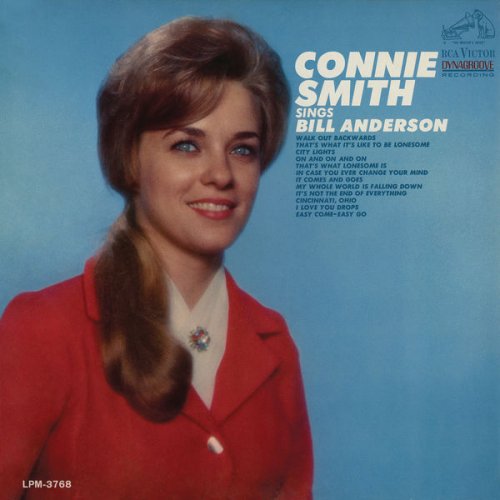
Artist: Connie Smith
Title: Connie Smith Sings Bill Anderson
Year Of Release: 1967 / 2017
Label: RCA / Legacy
Genre: Country
Quality: FLAC (tracks) [96kHz/24bit]
Total Time: 29:12 min
Total Size: 684 MB
WebSite: Album Preview
Tracklist:Title: Connie Smith Sings Bill Anderson
Year Of Release: 1967 / 2017
Label: RCA / Legacy
Genre: Country
Quality: FLAC (tracks) [96kHz/24bit]
Total Time: 29:12 min
Total Size: 684 MB
WebSite: Album Preview
01. It Comes And Goes (1:57)
02. I Love You Drops (2:45)
03. City Lights (2:38)
04. Cincinatti, Ohio (2:12)
05. It's Not The End Of Everything (2:39)
06. My Whole World Is Falling Down (2:29)
07. Easy Come, Easy Go (1:54)
08. That's What Lonesome Is (2:42)
09. Walk Out Backwards (2:35)
10. In Case You Ever Change Your Mind (2:21)
11. On And On And On (2:17)
12. That's What It's Like To Be Lonesome (2:48)
In less than a year, Connie Smith moved from being a small-town Ohio housewife to country stardom with a number one single to her credit. Perhaps overly compared to and identified with Patsy Cline, Smith is still considered by many to be one of the best and most underrated vocalists in country history. Her lonely desperation came straight from the heart; also, her father was abusive when she was a child, causing Smith to suffer a mental breakdown while she was in her teens.
Smith was born Constance Meadows on August 14, 1941, in Elkhart, Indiana, but spent her early life first in West Virginia and later in Ohio. She married and became a housewife in the early '60s, singing occasionally on local TV shows around her home in Marietta, Ohio. She was singing near Columbus in August 1963 when country star Bill Anderson heard her and offered his help in getting a contract. She signed to RCA after a few months and recorded several selections in July 1964 with Chet Atkins at the helm. "Once a Day" -- written especially for her by Anderson -- was released as a single in September and hit the top of the country charts, reigning as number one for eight weeks.
Smith's follow-up, "Then and Only Then," hit number four (even the flip side reached the Top 25), and her Top Ten streak continued unabated until late 1968, including the big hits "If I Talk to Him," "Ain't Had No Lovin'," and "The Hurtin's All Over." Meanwhile, her success began to take a toll; constant appearances on the road, in films, and on The Lawrence Welk Show caused Smith to reconsider her path in the music industry and devote herself to family and religion. Though she didn't quit music entirely, she began to balance chart success with a lighter schedule. Though her country hits were rarer than in her mid-'60s heyday, Smith still managed the Top Tens "You and Your Sweet Love" in 1969, "I Never Once Stopped Loving You" the following year, and "Just One Time" in 1971. Her most successful year during the '70s was 1972. She recorded three big hits: the number five "Just What I Am," the number seven "If It Ain't Love (Let's Leave It Alone)," and the number eight "Love Is the Look You're Looking For."
By 1972, Smith began to incorporate more gospel into her act. With the help of her third husband, evangelist Marshall Haynes, she turned her live show into a traveling gospel road show and signed with Columbia, which permitted her to record more straight gospel songs. Though the material didn't score as well on the charts as her secular singles had, she managed to stay in the Top 20 during much of the '70s. After she signed with Monument in 1977, most of her singles dropped out of the Top 40. Though she has not been a commercial force since the '70s, Smith continues to perform with the Grand Ole Opry and in 1998 returned with her first LP in many years, a self-titled effort issued on Warner Bros. The album garnered critical accolades, and Smith next returned with Love Never Fails, a collaborative gospel album recorded with Barbara Fairchild and Sharon White and released by Daywind Records in 2003. It would be almost eight years before Smith's next studio offering, the Marty Stuart-produced Long Line of Heartaches (Smith and Stuart have been husband and wife since 1997), which appeared from Sugar Hill Records in 2011. ~ John Bush
Smith was born Constance Meadows on August 14, 1941, in Elkhart, Indiana, but spent her early life first in West Virginia and later in Ohio. She married and became a housewife in the early '60s, singing occasionally on local TV shows around her home in Marietta, Ohio. She was singing near Columbus in August 1963 when country star Bill Anderson heard her and offered his help in getting a contract. She signed to RCA after a few months and recorded several selections in July 1964 with Chet Atkins at the helm. "Once a Day" -- written especially for her by Anderson -- was released as a single in September and hit the top of the country charts, reigning as number one for eight weeks.
Smith's follow-up, "Then and Only Then," hit number four (even the flip side reached the Top 25), and her Top Ten streak continued unabated until late 1968, including the big hits "If I Talk to Him," "Ain't Had No Lovin'," and "The Hurtin's All Over." Meanwhile, her success began to take a toll; constant appearances on the road, in films, and on The Lawrence Welk Show caused Smith to reconsider her path in the music industry and devote herself to family and religion. Though she didn't quit music entirely, she began to balance chart success with a lighter schedule. Though her country hits were rarer than in her mid-'60s heyday, Smith still managed the Top Tens "You and Your Sweet Love" in 1969, "I Never Once Stopped Loving You" the following year, and "Just One Time" in 1971. Her most successful year during the '70s was 1972. She recorded three big hits: the number five "Just What I Am," the number seven "If It Ain't Love (Let's Leave It Alone)," and the number eight "Love Is the Look You're Looking For."
By 1972, Smith began to incorporate more gospel into her act. With the help of her third husband, evangelist Marshall Haynes, she turned her live show into a traveling gospel road show and signed with Columbia, which permitted her to record more straight gospel songs. Though the material didn't score as well on the charts as her secular singles had, she managed to stay in the Top 20 during much of the '70s. After she signed with Monument in 1977, most of her singles dropped out of the Top 40. Though she has not been a commercial force since the '70s, Smith continues to perform with the Grand Ole Opry and in 1998 returned with her first LP in many years, a self-titled effort issued on Warner Bros. The album garnered critical accolades, and Smith next returned with Love Never Fails, a collaborative gospel album recorded with Barbara Fairchild and Sharon White and released by Daywind Records in 2003. It would be almost eight years before Smith's next studio offering, the Marty Stuart-produced Long Line of Heartaches (Smith and Stuart have been husband and wife since 1997), which appeared from Sugar Hill Records in 2011. ~ John Bush
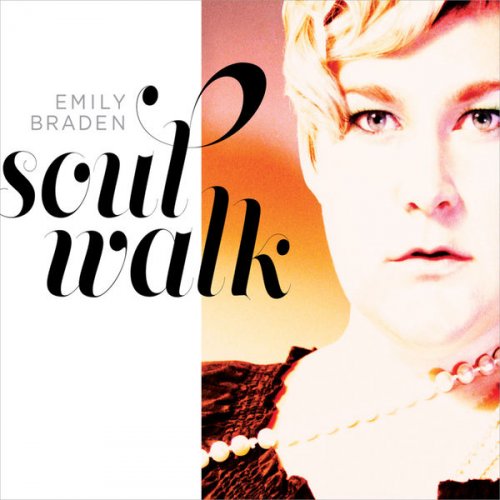


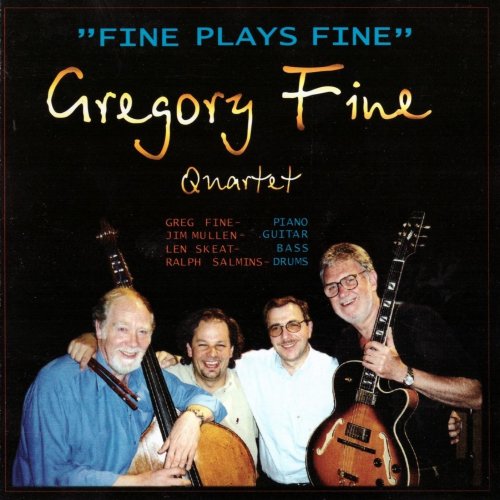


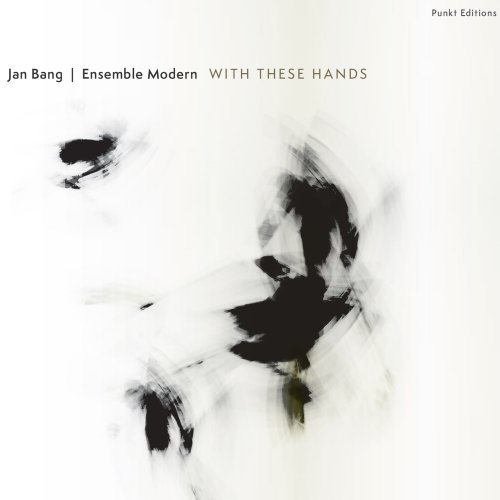
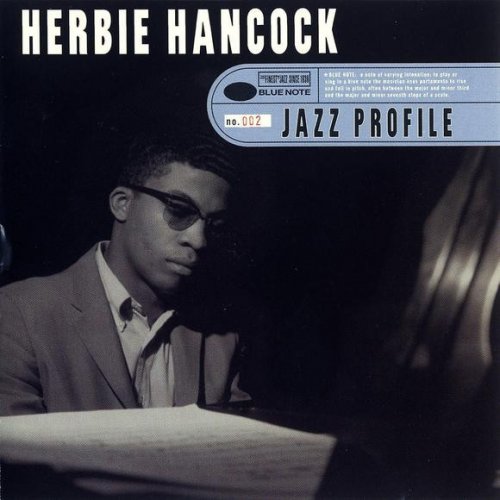
![Joe Lovano, Winston Salem Symphony & Michelle Merrill - a raft, the sky, the wild sea (2026) [Hi-Res] Joe Lovano, Winston Salem Symphony & Michelle Merrill - a raft, the sky, the wild sea (2026) [Hi-Res]](https://www.dibpic.com/uploads/posts/2026-02/1770314335_cover.jpg)